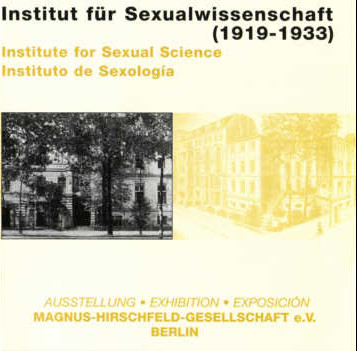Founders of the Institute
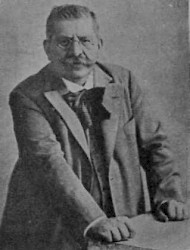

Magnus Hirschfeld, M.D. (1868-1935)
Physician, natural health practitioner, sex researcher, sexual reformer, eugenicist, socialist, leading figure of the first German homosexual movement
Hirschfeld founded the Institute for Sexual Science in 1918, after years of planning, through a private foundation named after him.
When the Institute for Sexual Science opened in 1919, Hirschfeld was its director. Its “facilities for research, teaching, healing, and refuge” was intended to “free the individual from physical ailments, psychological afflictions, and social deprivations.”
The guiding principle of his life’s work was:
PER SCIENTIAM AD JUSTITIAM
(Justice Through Science)
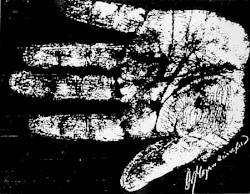

Hirschfeld’s consultation room was a meeting place above all for those patients he diagnosed as being in a “sexual transition stage,” with whom he felt a special bond (Adaption Therapy). In the inner circles at the Institute, Hirschfeld’s lover Karl Giese was considered “woman of the house.”
As director of the Institute, he was active in almost all departments.
He determined the theoretical orientation of the Institute with respect to hormonal research.
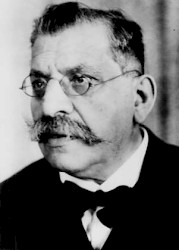

He and his colleagues considered sexual science to form the basis for sociopolitical, practical sexual reform. This included penal and marriage reform, eugenic marriage counseling, contraception and population politics, sex education and nudism, etc. He fought along with the Scientific Humanitarian Committee for the repeal of the anti-homosexuality legislation, he was active in the radical-feminist “Bund für Mutterschutz” (League for the Protection of Motherhood), and he spoke out for the repeal of anti-abortion legislation.
Hirschfeld offered physicians further education courses in the Institute and he traveled internationally on lecture tours and organized sex education events at adult education centers.
Together with other doctors at the Institute, Hirschfeld developed remedies for impotence. He optimistically propagated “rejuvenation therapy” with hormonal treatment.
(see also From Stigmatization to the Enemy Incarnate)
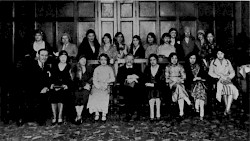

Biographical Data:
14 May 1868 born in Kolberg, Germany
1887-1892 University studies: philology, medicine
1894 opened natural health medical practice
1897 founded the Scientific Humanitarian Committee, served as committee president until 1929
1908 co-founder of the Berlin Association for Psychoanalysis
1913 co-founder of the Physicians’ Society for Sexual Science and Eugenics in Berlin
1914-1918 military doctor and medical expert during World War I
1919 opened the Institute for Sexual Science
1921 initiator of the First International Conference for Sexual Reform on a Scientific Basis, in Berlin
1926 traveled to Moscow and Leningrad on invitation of the Government of the USSR
1931 traveled throughout North America, Asia, and the Middle East
1932 returned to Vienna; later, exile to Switzerland
1933 shutting-down and destruction of the Institute for Sexual Science in Berlin; moved to Paris, attempted to reestablish the Institute there
1934 moved to Nice
1935 died on his 67th birthday
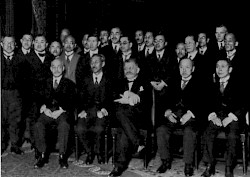

Major Publications:
1896 Sappho und Sokrates
1899-1923 editor of the Jahrbuch für sexuelle Zwischenstufen (Yearbook for Sexual Transitions)
1908 editor of Zeitschrift für Sexualwissenschaft (Journal of Sexual Science)
1910 Die Transvestiten
1912 Naturgesetze der Liebe (Natural Laws of Love)
1914 Die Homosexualität des Mannes und des Weibes (Male and Female Homosexuality)
1917-1920 Sexualpathologie, vols. 1-3
1924-1930 Geschlechtskunde (The Study of Gender and Sex), vols. 1-5
